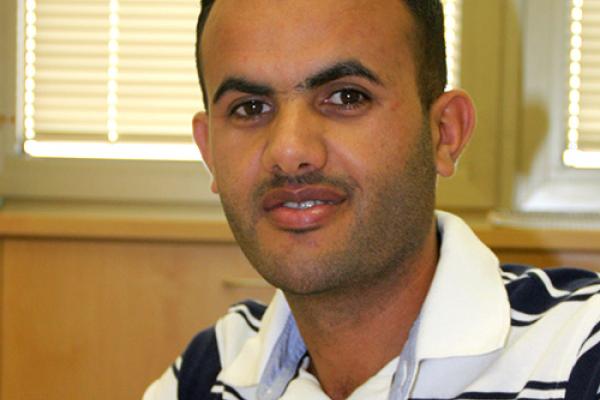
Click here to RSVP
(If you or your students would like to meet Kassim Alsraiha, please contact Esther Gottleib, Senior Advisor for International Affairs, at gottlieb.26@osu.edu
Kassim Alsraiha is a faculty member at the Mandel Center for Leadership in the Negev in Beer Sheva, Israel, Alsraihia facilitates leadership and professional training, specializing in education and community development. He headed the counseling department at Riyan Employment Center in Hura a Bedouin village beside the town of Meitar. He is one of the founders and served as a member of the board of directors of AHED , the Association of Academics for the Development of Arab Society in the Negev, and worked as a project manager at the Center for Bedouin Research & Development.
Alsraiha holds two masters degrees, one from Tel Aviv University’s Department of Middle Eastern and African History and one from Ben-Gurion University’s Department of Middle East Studies for which he received a Research Award from the Chaim Herzog Center for Middle East Studies & Diplomacy. He is currently working on his PhD at the Middle Eastern Studies Department at Ben-Gurion University. His dissertation research is on the rethinking of religion and citizenship in the Gulf countries in view of the spread of fundamentalist organizations. Among his research publications are: “The Tribal Law: Segregation or Integration," and “Legal Pluralism or Government Practice? Shari‘a Court in Beer Sheva.”
Abstract
In the Gulf States, some of whose citizens are joining Islamic State, an interesting discourse has developed between conservative and reformist clerics on the nature of the relationship between citizens and the modern state in accordance with Islamic sharia law. The “Islamic State” challenges both the ideology and the territorial tactics of the modern state and its definitions of citizenship. Interestingly, however, contemporary reinterpretation of citizenship is not exclusive to conservative Islamic thinkers. This talk will examine the reformist religious citizenship proposed by reformist clerics like Dr. Adnan Ibrahim and the degree to which these new ideas are being accepted by the populations of the Gulf States whose followers on social networks count in the millions.
Reformist clerics claim that Islamic fundamentalist writings contain concepts of citizenship as they are known today in other parts of the world. This interpretation contradicts the discourse that takes place in the circles of conservative religious scholars who sanctify the concept of the nation as belonging to the nation-state. Whereas conservative clerics construct the nation as a religious political community, in which religion organizes the relationships between citizens and the state, the reformists offer a more global, open, model, in which the nation, Ummah, is a social-political community that also includes non-Muslim citizens. This research on citizenship in the Gulf States is important for historical, social, economic and security reasons. The Gulf States region should be carefully studied as they are typified by characteristics that distinguish them from other parts of the Middle East.
This event is co-sponsored by The Mershon Center for International Security Studies, and the International Education Outreach Program in the Office of International Affairs at The Ohio State University.
